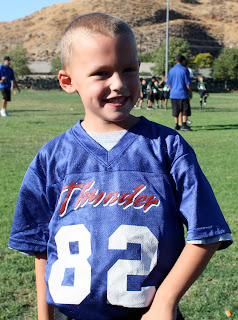This is a research study that we did with Evan yesterday. He did such a great job. What a blessing to us to be able to be part of this.
22q11.2 Deletion Syndrome (22qDS, or Velocardiofacial Syndrome) is a genetic disorder that occurs in approximately 1 in 4000 people. It is a disorder that frequently causes craniofacial anomalies and heart defects. It can also cause developmental delays. Many people with 22qDS have a greater chance of having attention deficits, learning disabilities, and particular psychiatric conditions.
While there is no known cure for 22qDS, there is a lot of exciting research happening in this area. UCLA investigators have recently embarked on a study to further expand the knowledge of 22qDS in humans. This is not a treatment study; however, it is hoped that the information gathered from this study may help to develop treatments for the disorder in the future.
THE PURPOSE OF THE STUDY
This current research study, conducted jointly by investigators, Carrie Bearden, Ph.D., Departments of Psychiatry and Biobehavioral Sciences and Psychology, Katrina Dipple, M.D., Ph.D., Departments of Human Genetics and Pediatrics, and Christina Palmer, Ph.D., Department of Psychiatry and Biobehavioral Sciences, aims to examine emotional adjustment, thought processes such as memory and attention, and brain structure and activity in children and adolescents with 22qDS, as compared to children and adolescents without the disorder. The study also aims to determine whether variation in the specific genes affected by 22qDS is related to differences in brain structure, function and behavior. By repeating the assessments at two follow-up visits (1 and 2 years later) we will be able to determine how brain structure and function changes over time in individuals with 22qDS.
WHAT WILL PARTICIPATION INCLUDE?
Baseline participation may take between one to two days (~7 hours for all study procedures). Participants will be given paper and pencil and computer tests of memory, attention and logic, and interviews about their mood, thoughts and behaviors by a trained staff member at the UCLA Center for Cognitive Neuroscience, and an MRI scan at UCLA’S Brain Research Institute. These tests will help us to learn more about how the brain works in people with 22qDS. The study also involves a review of medical records, to get information about birth and medical history, and an optional blood or saliva sample obtained from both you and your child, to determine whether the genes affected by 22qDS may be related to differences in how the brain works. Some of the study procedures will be repeated at 2 follow-up timepoints. All procedures will be explained carefully and all participation is completely VOLUNTARY. You may withdraw from the study at any time. There is no financial obligation on the part of the participant.
Participants will be compensated up to $260 for full participation in all of the study visits. If after the initial evaluation it is determined that you are not eligible for the study you will be compensated $20 for your time. There are minimal risks involved with participating in this study.
WHO MAY BE ELIGIBLE TO PARTICIPATE?
1. Your child is between the ages of 6-22
2. Your child has a confirmed diagnosis of 22q11.2 deletion, via FISH test
3. Your child has not been diagnosed with a disorder of the brain or nervous system (such as epilepsy, encephalitis, brain tumor, etc.)
4. Your child does not use drugs or abuse alcohol
5. Your child is able to complete the study measures and interviews in English.
Contact Information
If you are interested in finding out more about this research study, Please call Carolyn Chow at (310) 825-3458 or email beardenlab.ucla@gmail.com *Individuals under 18 must have their parents call.
Principal Investigator: Carrie Bearden, Ph.D.
Email: cbearden@mednet.ucla.edu
Department: UCLA Semel Institute, Depts of
Psychiatry and Psychology, and Brain Research
Institute
Please be assured all inquiries are kept confidential
participating in this study UCLA IRB Approved Approval Date: 11/17/2010 Through: 11/16/2011TeCloemphmoitntee::(M31e0di)c7al9I4R-B9733


